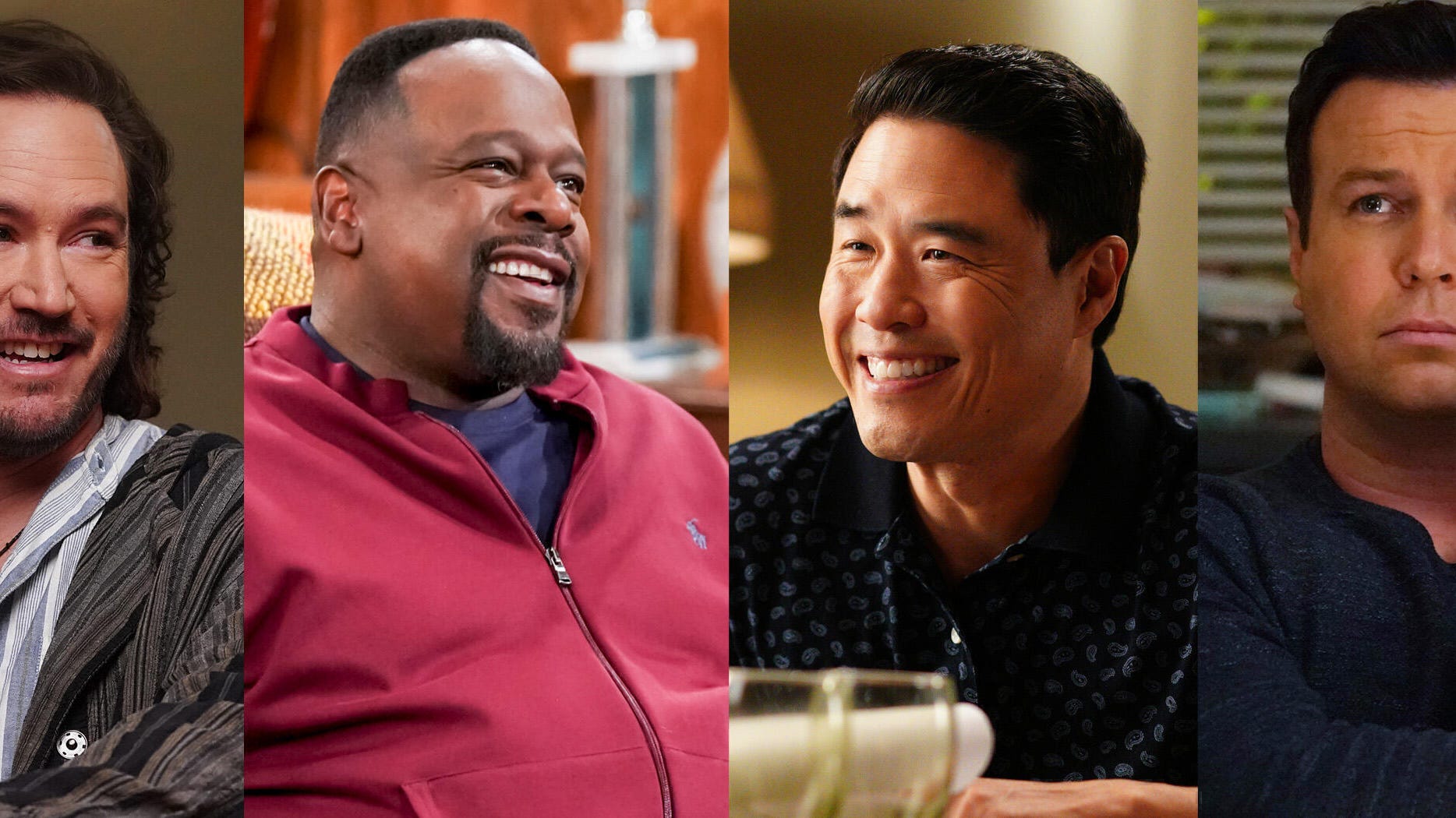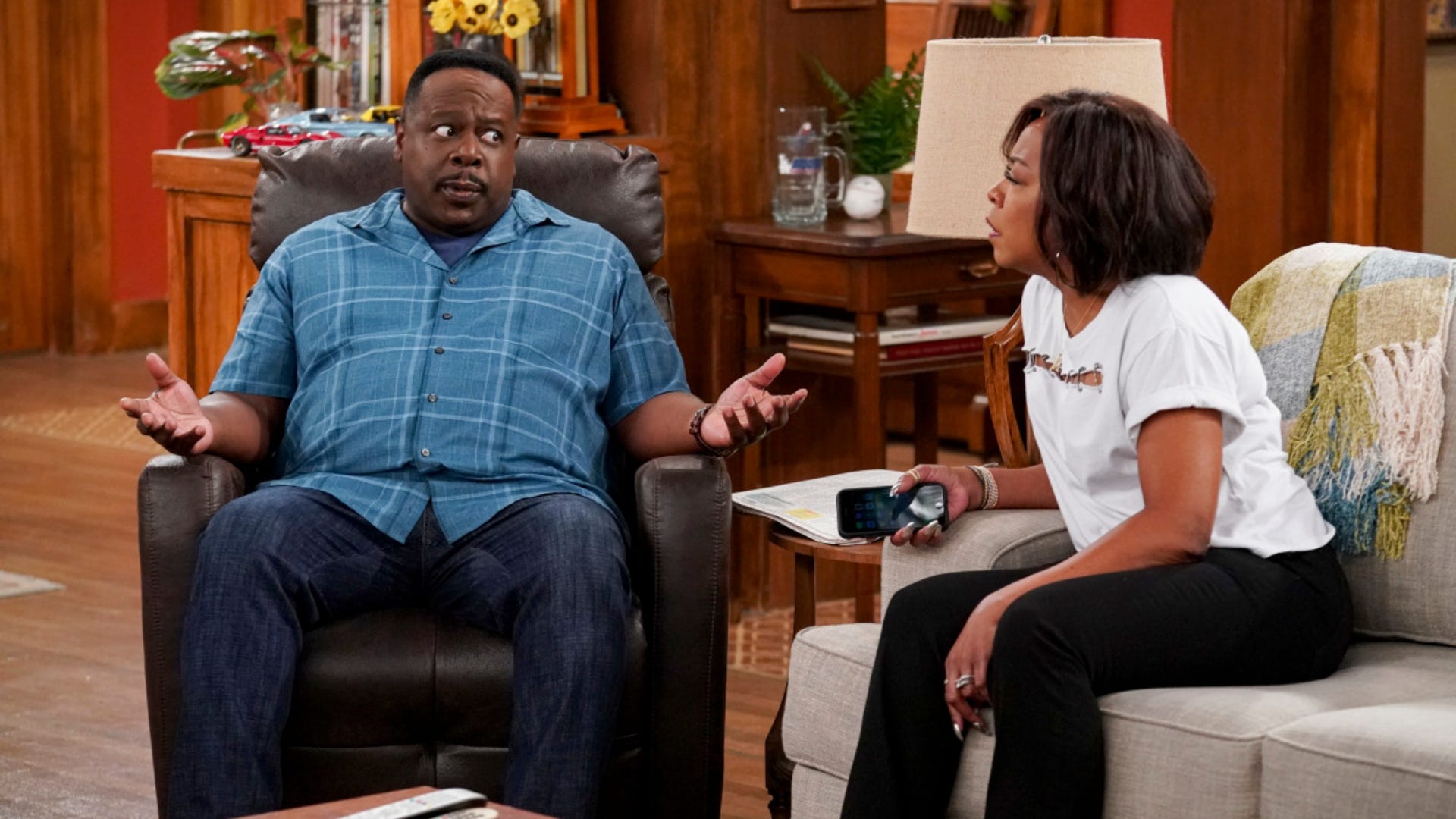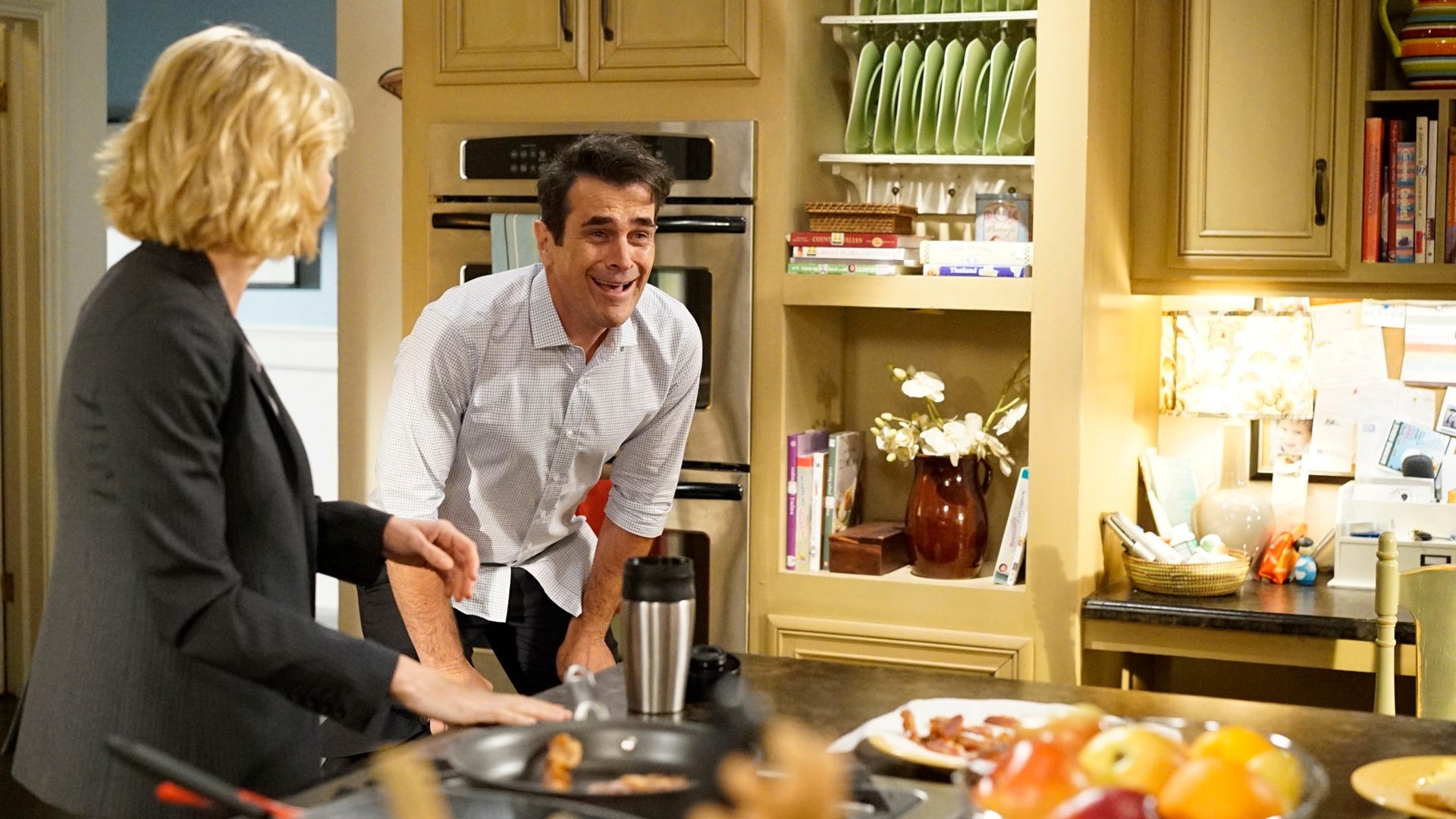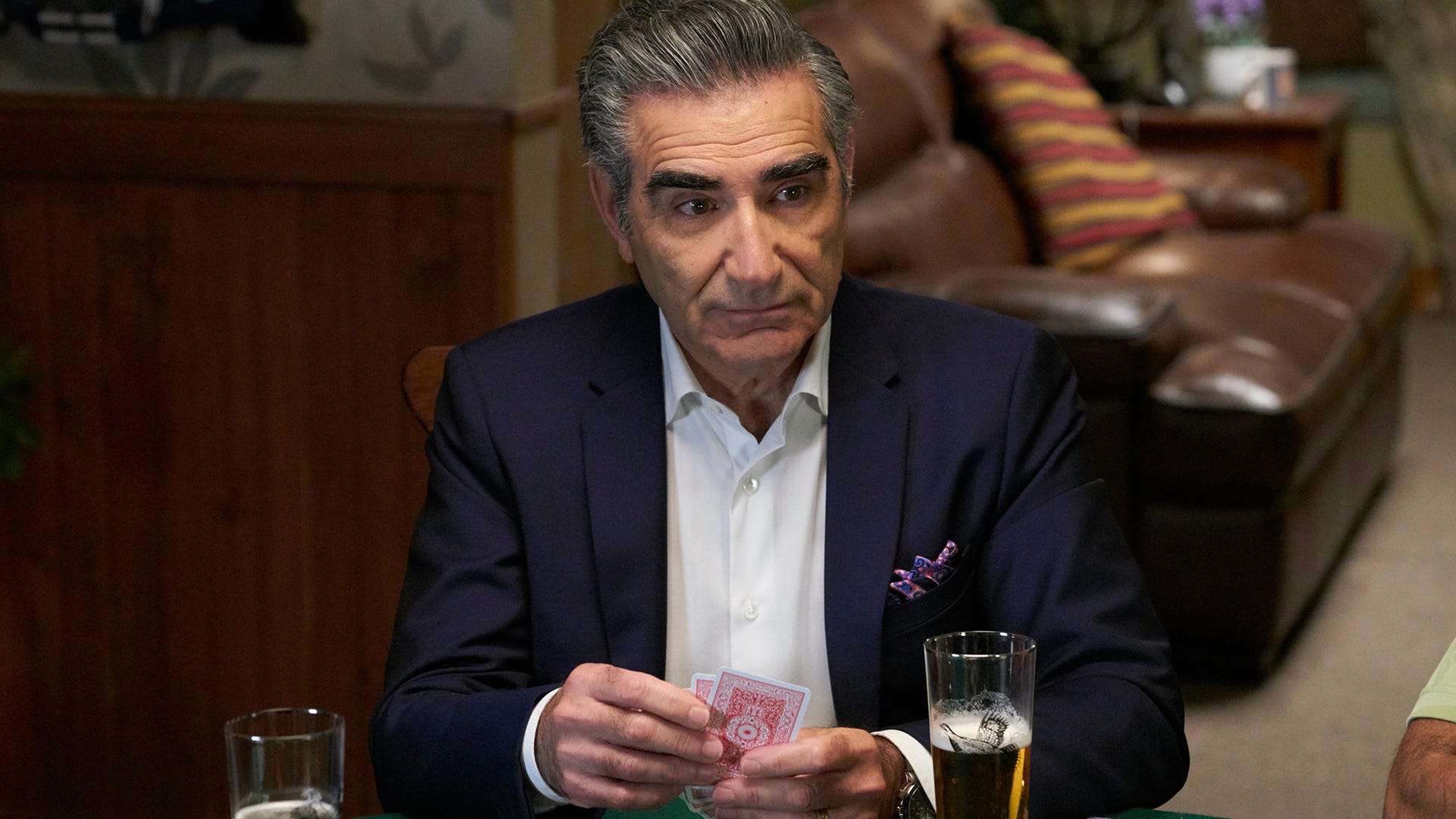
7 Sitcom Dads Changing How We Think About Fatherhood Now
How today's TV dads look entirely different from those you grew up watching

"I See You Man" from TV Guide
This story is part of a series, "I See You Man," about depictions of manhood and masculinity running through the month of November, which is Men's Health Awareness month.
If you want to get a good read on present-day cultural values, look no further than the American TV sitcom. Comedy gives the brightest minds a license to mock the things we hold dear, and through the years, sitcoms have said a lot about what Americans think of the men who raise children. Whether it was the stubborn Archie Bunker (Carroll O'Connor) from All in the Family, the lazy Al Bundy (Ed O'Neil) on Married With Children, or salt-of-the-Earth Mike Heck (Neil Flynn) on The Middle, sitcoms have been integral in reflecting and shaping ideas of what the typical dad looked like at various points in culture -- and, now, they're hinting at how dads of the coming generation might behave when they grew up, too.
For a long time, sitcom interpretations of men and masculinity tended to subtly (and not-so-subtly) reinforce patriarchal notions about how to be a man. Archie and Al endure as classic figures of the form but today, many of the fundamental traits and "quirks" they projected -- Archie's prejudice, Al's sexism, e.g. -- are so outdated they are reproachable relics. By the late 1980s, when dual-income households began to undo the assumption that only Mom could cook, clean and mind the children, dads like the human cardigan sweater Danny Tanner (Bob Saget) of Full Houseor Dr. Jason Seaver (Alan Thicke) from Growing Pains emerged. These were men who did chores, nurtured children, and took on more domestic responsibilities than their predecessors -- but they were still outliers. Most often, sitcom dads were clueless klutzes like Homer Simpson, boors who barked out commands or men who left the actual dirty work of parenting to exasperated partners stuck holding the diaper bag. But times have changed now.
In the post-Obama era, when women earn more advanced degrees than men, and even men know they're expected to pitch in (even if women still end up doing more housework regardless), the beer-swilling, boisterous oaf of a husband (we're looking you Peter Griffin) is more an exception than the standard. The modern TV dad is sensitive, complex and more involved with his children's lives. They still screw up, of course, but today's TV dads are more likely to move with an awareness that's without precedent; they're often less attached to rigid rules their parents drilled into them, they're more fluid in divvying up responsibilities, they never trip when the daughter (or the son) wants to go to school in a princess costume. Going into 2020, sitcom dads are carving out new archetypes for the future. Here are a few examples of modern TV dads that are forging a new path.
1. The Idealist: Paul Johnson, mixed-ish

Mark-Paul Gosselaar, mixed-ish
ABCInherent in the groundbreaking story told on mixed-ish -- a young Rainbow Johnson learns to navigate her bi-racial identity in a world that asks her to choose between black or white -- is another groundbreaking portrayal: a white dad learning to see the world through his bi-racial daughter's eyes. Set in the 1980s, mixed-ish takes place at time when Paul (Mark-Paul Gosselaar) isn't exactly a pioneer by staying at home so his (African American) wife (Tika Sumpter) can return to her career as a lawyer, but he's intent on being the opposite of his bigoted, sexist father Harrison (Gary Cole) and that informs how he interacts with his kids. Paul dares to get out of his comfort zone to understand the complicated issues his family is dealing with -- from where to sit in the cafeteria to how to style their hair. He definitely doesn't always get it right, but he really tries, and has no qualms about being vulnerable and open-minded in figuring out how to be the man his family needs him to be.
2. The Evolving Old School-er: Calvin Butler, The Neighborhood

Cedric the Entertainer, The Neighborhood
Monty Brinton/CBSNo one's ever going to accuseThe Neighborhood's Calvin Butler (Cedric the Entertainer) of being too sensitive, or easy to pull a fast one on. He is unapologetically old school, as evidenced by his general annoyance at his sons' foolish pastimes. Men of Calvin's generation were not warm and fuzzy dads, and there are times when Calvin seems as stubborn as a splinter. Yet it's in the conversations he has with his sons, expressing himself the best that he knows, where his armor falls. He's adaptable, particularly when he realizes that the beliefs he expects his children to abide by may not be in their best interest. In one episode, Calvin makes fun of his son Marty (Marcel Spears) because he's playing a board game, but realizes that he's hurt his son's feelings, leading to a heart-to-heart and Calvin learning to show interest in what Marty enjoys. And that says nothing of the show's main conceit: as a longtime resident of a predominately black neighborhood he expected to stay that way same way forever, Calvin is naturally hesitant with his white neighbor Dave (Max Greenfield) but stretching his arms wider and wider every episode to embrace him. Calvin isn't an entirely new type: he's about as red-blooded American as a TV dad can get. He isn't rushing to try new things, and he'll never be a touchy-feely type. But he isn't stuck either, and takes pride in evolving, even if it's in baby steps.
3. The Co-Op Pops: Will, Miggy and Doug, Single Parents

Single Parents
ABCSingle Parents' heroes basically crowdsource parenting, leaning on each other for scheduling help and free therapy. Its trio of dads -- Will (Tarran Killam), Miggy (Jake Choi) and Doug (Brad Garrett) -- each have their own style of parenting, and hint that we're only now starting to see nuances that have long gone underrepresented. Will is earnest, overbearing, and extremely nurturing to his daughter Sophie (and everyone else's kids); he's the type to make gluten-free cookies and weep when he has to flush his kid's goldfish. Miggy is basically a man-child, yet a born nurturer, and though Doug is a step away from being a real life Scrooge McDuck -- he has the softest of spots in his heart for his twin girls, raising them to be mini capitalist versions of himself. Maybe that's feminist? Hard to say. Nonetheless, all these men lean on each other for help and they don't expect the women in their lives to do the heavy lifting. Each parent pulls his own weight and, in Will and Miggy's case, they know how to ask for help. It seems radical, even if it all should be the norm.
4. Adorkable Dad: Phil Dunphy, Modern Family

Ty Burrell, Modern Family
ABCPhil Dunphy (Ty Burrell) of ABC's soon-to-be-finished Modern Family may very well be the TV dad who best embodies the dramatic social changes that have taken hold in the first half of this millennium. He spends ample time at home with the kids, supports his wife in the workforce, and welcomes his gay brother-in-law's family to the point of smothering. Phil very well could've been a collage of liberal cliches and coastal elite neuroses -- and to be sure sure, his progressive California lifestyle sometimes makes him the butt of father-in-law Jay's (Ed O'Neil) jokes. Even Phil would admit he can be a bit of a pushover, subject to the psychological manipulation of his smart daughters and conniving son. But Phil is simply sensitive in the best possible way. He's a sucker for sentimental gestures, insistent on celebrating family traditions, and unashamed to cry when he sees his kids growing too fast. He allows himself to be vulnerable, and is always confident about it.
5. The Sage Striver: Louis Huang, Fresh Off The Boat

Randall Park, Fresh Off the Boat
ABCFresh off the Boat's Louis Huang (Randall Park) brings an important update to the All-American sitcom dad to the forefront: the immigrant experience. Equal parts cool-dad (well, wannabe cool dad, but he's trying) and old-world values, Louis is about having a good time as much as he is about hard work and honoring tradition. A lot has been said about Fresh Off the Boat's impact in terms of representing Asian-Americans, and what it's like to try to fit in while holding on to your roots. Yet another way the show offered a fresh perspective was by showing a father who got as much wisdom from his kids as he dispensed.
6. The Adaptor: Johnny Rose, Schitt's Creek

Eugene Levy, Schitt's Creek
Steve Wilkie/Pop TVBefore the feds came and took away his fortune, Johnny Rose (Eugene Levy) was far too focused on his video empire to notice that his family was anything but a bunch of strangers sharing a cold, lifeless mansion and a last name. But when that house of cards fell, and they ended up living in the eponymous town's run-down motel, Johnny still got back to the business of providing for his brood -- but this time, he did so while actually paying attention to them and nurturing their newfound sense of unity and love. Johnny was always loyal and hard-working, but once his bankruptcy exposed the hollowness of his life, he embraced the chance to forge some real bonds for his family. Johnny might not always get the credit for making Schitt's Creek feel like a place of sheer bliss and seen-ness, but his ability to so truly accept and enjoy his children is crucial to creating that feel-good environment.
7. The Kindly Pessimist: Bob Belcher, Bob's Burgers

Bob's Burgers
FoxHe might not have the sunniest disposition, but unlike others of his ilk -- like Homer Simpson, Peter Griffin, and Frank from F Is for Family -- Bob Belcher isn't a dominating dad. He can be a bit petty -- and he rightly defers to the much cheerier Linda on the most tender of issues with his children -- but behind all those frowns is a man who recognizes that his ambitions are no more important than anyone else in his family. He might be the one whose name is on the title, and whose lifelong dream it is to run the restaurant, but he knows that his family is an ensemble and not a one-man show and doesn't need to lord over his loved ones to feel like a father.
Additional contributions from Amanda Bell and Malcolm Venable